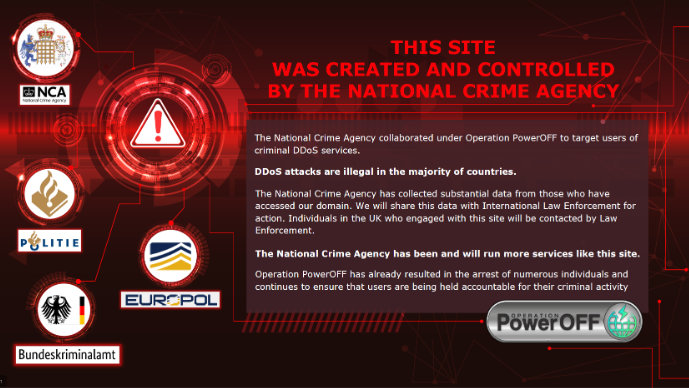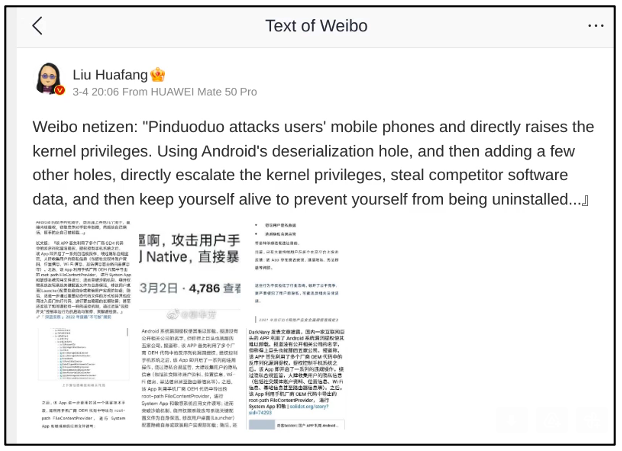A new breach involving data from nine million AT&T customers is a fresh reminder that your mobile provider likely collects and shares a great deal of information about where you go and what you do with your mobile device — unless and until you affirmatively opt out of this data collection. Here’s a primer on why you might want to do that, and how.

Image: Shutterstock
Telecommunications giant AT&T disclosed this month that a breach at a marketing vendor exposed certain account information for nine million customers. AT&T said the data exposed did not include sensitive information, such as credit card or Social Security numbers, or account passwords, but was limited to “Customer Proprietary Network Information” (CPNI), such as the number of lines on an account.
Certain questions may be coming to mind right now, like “What the heck is CPNI?” And, ‘If it’s so ‘customer proprietary,’ why is AT&T sharing it with marketers?” Also maybe, “What can I do about it?” Read on for answers to all three questions.
AT&T’s disclosure said the information exposed included customer first name, wireless account number, wireless phone number and email address. In addition, a small percentage of customer records also exposed the rate plan name, past due amounts, monthly payment amounts and minutes used.
CPNI refers to customer-specific “metadata” about the account and account usage, and may include:
-Called phone numbers
-Time of calls
-Length of calls
-Cost and billing of calls
-Service features
-Premium services, such as directory call assistance
According to a succinct CPNI explainer at TechTarget, CPNI is private and protected information that cannot be used for advertising or marketing directly.
“An individual’s CPNI can be shared with other telecommunications providers for network operating reasons,” wrote TechTarget’s Gavin Wright. “So, when the individual first signs up for phone service, this information is automatically shared by the phone provider to partner companies.”
Is your mobile Internet usage covered by CPNI laws? That’s less clear, as the CPNI rules were established before mobile phones and wireless Internet access were common. TechTarget’s CPNI primer explains:
“Under current U.S. law, cellphone use is only protected as CPNI when it is being used as a telephone. During this time, the company is acting as a telecommunications provider requiring CPNI rules. Internet use, websites visited, search history or apps used are not protected CPNI because the company is acting as an information services provider not subject to these laws.”
Hence, the carriers can share and sell this data because they’re not explicitly prohibited from doing so. All three major carriers say they take steps to anonymize the customer data they share, but researchers have shown it is not terribly difficult to de-anonymize supposedly anonymous web-browsing data.
“Your phone, and consequently your mobile provider, know a lot about you,” wrote Jack Morse for Mashable. “The places you go, apps you use, and the websites you visit potentially reveal all kinds of private information — e.g. religious beliefs, health conditions, travel plans, income level, and specific tastes in pornography. This should bother you.”
Happily, all of the U.S. carriers are required to offer customers ways to opt out of having data about how they use their devices shared with marketers. Here’s a look at some of the carrier-specific practices and opt-out options.
AT&T
AT&T’s policy says it shares device or “ad ID”, combined with demographics including age range, gender, and ZIP code information with third parties which explicitly include advertisers, programmers, and networks, social media networks, analytics firms, ad networks and other similar companies that are involved in creating and delivering advertisements.
AT&T said the data exposed on 9 million customers was several years old, and mostly related to device upgrade eligibility. This may sound like the data went to just one of its partners who experienced a breach, but in all likelihood it also went to hundreds of AT&T’s partners.
AT&T’s CPNI opt-out page says it shares CPNI data with several of its affiliates, including WarnerMedia, DirecTV and Cricket Wireless. Until recently, AT&T also shared CPNI data with Xandr, whose privacy policy in turn explains that it shares data with hundreds of other advertising firms. Microsoft bought Xandr from AT&T last year.
T-MOBILE
According to the Electronic Privacy Information Center (EPIC), T-Mobile seems to be the only company out of the big three to extend to all customers the rights conferred by the California Consumer Privacy Act (CCPA).
EPIC says T-Mobile customer data sold to third parties uses another unique identifier called mobile advertising IDs or “MAIDs.” T-Mobile claims that MAIDs don’t directly identify consumers, but under the CCPA MAIDs are considered “personal information” that can be connected to IP addresses, mobile apps installed or used with the device, any video or content viewing information, and device activity and attributes.
T-Mobile customers can opt out by logging into their account and navigating to the profile page, then to “Privacy and Notifications.” From there, toggle off the options for “Use my data for analytics and reporting” and “Use my data to make ads more relevant to me.”
VERIZON
Verizon’s privacy policy says it does not sell information that personally identities customers (e.g., name, telephone number or email address), but it does allow third-party advertising companies to collect information about activity on Verizon websites and in Verizon apps, through MAIDs, pixels, web beacons and social network plugins.
According to Wired.com’s tutorial, Verizon users can opt out by logging into their Verizon account through a web browser or the My Verizon mobile app. From there, select the Account tab, then click Account Settings and Privacy Settings on the web. For the mobile app, click the gear icon in the upper right corner and then Manage Privacy Settings.
On the privacy preferences page, web users can choose “Don’t use” under the Custom Experience section. On the My Verizon app, toggle any green sliders to the left.
EPIC notes that all three major carriers say resetting the consumer’s device ID and/or clearing cookies in the browser will similarly reset any opt-out preferences (i.e., the customer will need to opt out again), and that blocking cookies by default may also block the opt-out cookie from being set.
T-Mobile says its opt out is device-specific and/or browser-specific. “In most cases, your opt-out choice will apply only to the specific device or browser on which it was made. You may need to separately opt out from your other devices and browsers.”
Both AT&T and Verizon offer opt-in programs that gather and share far more information, including device location, the phone numbers you call, and which sites you visit using your mobile and/or home Internet connection. AT&T calls this their Enhanced Relevant Advertising Program; Verizon’s is called Custom Experience Plus.
In 2021, multiple media outlets reported that some Verizon customers were being automatically enrolled in Custom Experience Plus — even after those customers had already opted out of the same program under its previous name — “Verizon Selects.”
If none of the above opt out options work for you, at a minimum you should be able to opt out of CPNI sharing by calling your carrier, or by visiting one of their stores.
THE CASE FOR OPTING OUT
Why should you opt out of sharing CPNI data? For starters, some of the nation’s largest wireless carriers don’t have a great track record in terms of protecting the sensitive information that you give them solely for the purposes of becoming a customer — let alone the information they collect about your use of their services after that point.
In January 2023, T-Mobile disclosed that someone stole data on 37 million customer accounts, including customer name, billing address, email, phone number, date of birth, T-Mobile account number and plan details. In August 2021, T-Mobile acknowledged that hackers made off with the names, dates of birth, Social Security numbers and driver’s license/ID information on more than 40 million current, former or prospective customers who applied for credit with the company.
Last summer, a cybercriminal began selling the names, email addresses, phone numbers, SSNs and dates of birth on 23 million Americans. An exhaustive analysis of the data strongly suggested it all belonged to customers of one AT&T company or another. AT&T stopped short of saying the data wasn’t theirs, but said the records did not appear to have come from its systems and may be tied to a previous data incident at another company.
However frequently the carriers may alert consumers about CPNI breaches, it’s probably nowhere near often enough. Currently, the carriers are required to report a consumer CPNI breach only in cases “when a person, without authorization or exceeding authorization, has intentionally gained access to, used or disclosed CPNI.”
But that definition of breach was crafted eons ago, back when the primary way CPNI was exposed was through “pretexting,” such when the phone company’s employees are tricked into giving away protected customer data.
In January, regulators at the U.S. Federal Communications Commission (FCC) proposed amending the definition of “breach” to include things like inadvertent disclosure — such as when companies expose CPNI data on a poorly-secured server in the cloud. The FCC is accepting public comments on the matter until March 24, 2023.
While it’s true that the leak of CPNI data does not involve sensitive information like Social Security or credit card numbers, one thing AT&T’s breach notice doesn’t mention is that CPNI data — such as balances and payments made — can be abused by fraudsters to make scam emails and text messages more believable when they’re trying to impersonate AT&T and phish AT&T customers.
The other problem with letting companies share or sell your CPNI data is that the wireless carriers can change their privacy policies at any time, and you are assumed to be okay with those changes as long as you keep using their services.
For example, location data from your wireless device is most definitely CPNI, and yet until very recently all of the major carriers sold their customers’ real-time location data to third party data brokers without customer consent.
What was their punishment? In 2020, the FCC proposed fines totaling $208 million against all of the major carriers for selling their customers’ real-time location data. If that sounds like a lot of money, consider that all of the major wireless providers reported tens of billions of dollars in revenue last year (e.g., Verizon’s consumer revenue alone was more than $100 billion last year).
If the United States had federal privacy laws that were at all consumer-friendly and relevant to today’s digital economy, this kind of data collection and sharing would always be opt-in by default. In such a world, the enormously profitable wireless industry would likely be forced to offer clear financial incentives to customers who choose to share this information.
But until that day arrives, understand that the carriers can change their data collection and sharing policies when it suits them. And regardless of whether you actually read any notices about changes to their privacy policies, you will have agreed to those changes as long as you continue using their service.











